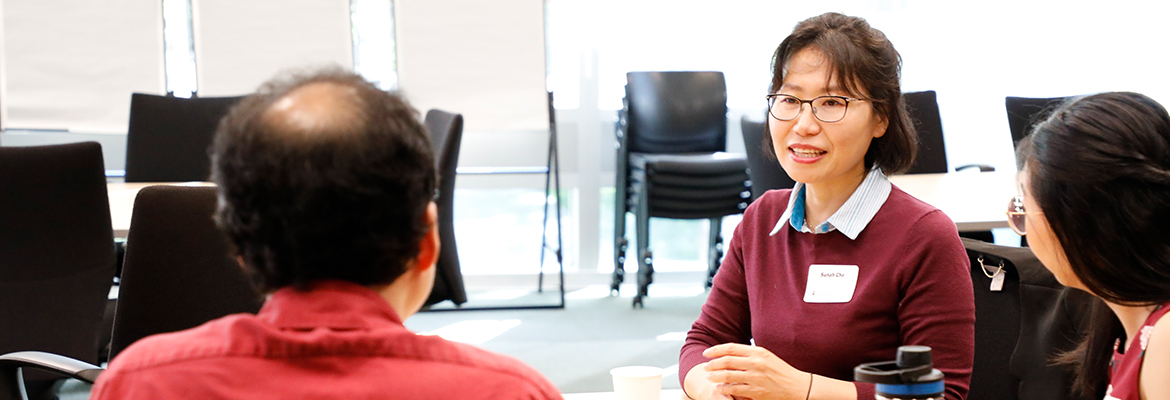The 2019 Spring Institute, hosted on May 21–24, offered educators within the UBC teaching and learning community with opportunities to share innovative teaching practices and research, to engage in dialogue around enhancing student learning experiences and to network with like-minded colleagues.
Inspired by UBC’s strategic plan: Shaping UBC’s Next Century, the theme of this year’s Spring Institute was Embracing Creativity & Risk-Taking. The program highlighted many teaching innovations – the process of implementation, iteration and result of educators’ creativity and risk-taking within their teaching contexts. The alignment with three of four pillars of UBC’s Strategic Plan – people and places, transformative learning, and research excellence – emerged organically through the contributions received by the Spring Institute coordinator, Deb Chen, PhD, and via feedback from the teaching and learning community. “The facilitators are taking a risk in sharing the work they are doing within their classrooms,” says Chen, as they open themselves up to potential critiques and feedback. The idea of “taking a risk in service of learning” resonated deeply with participants throughout the week.
“Cultivating creativity, resilience and shared risk-taking that catalyze new approaches within the university and beyond.”
(Shaping UBC’s Next Century. p. 31)
An example of risk-taking is learning and integrating new technology in one’s classroom. With many sessions on various learning technologies, the core message remains the same: technology needs to align with pedagogy. Institute participants were invited to articulate their teaching intentions and to engage in the intentional decision-making process to identify the most appropriate technology to adopt. A few sessions supported participants’ development around evaluating various aspects and impact of their teaching practices, which would enable them to determine whether a change in practice served its original intention and to iterate in a data-informed manner.
Institute participants enjoyed learning from fellow educators’ experiences and expertise. In particular, they responded positively to roundtable format sessions, such as “Dissemination of Undergraduate Research: A Best Practices Roundtable Symposium” hosted by Writing Across the Curriculum+. “Participants really appreciated [having] the space to dig deeper in conversation and to ask clarifying questions around context, so that they had something more tangible to take away,” reflects Chen. Sessions that offered protected time for participants to think through the teaching practice or approach and to consider ways to apply it to their own teaching contexts were very well received. Notably, participants found the session, “Using Student Peer Assessment to Reinforce Community and the Role of Audience,” particularly useful due to its balanced combination of presentation, reflection prompts, as well as workshop time to decontextualize their learning and re-contextualize it within their practice.
“Teaching can be an isolating practice,” explains Chen. To her, the Spring Institute serves as a platform to showcase the various ways instructors are experimenting within their teaching. She hopes that the Spring Institute provides a productive learning space for educators to engage in generative and reflective conversations around attending to the diverse needs of UBC students and enhancing their overall learning experiences. The ultimate goal is to “create community and to promote a culture of knowledge-sharing to build our collective capacity of enhancing student learning and experience.”
View photos from the 2019 Spring Institute.
The organizers of the Spring Institute would like to thank all of the presenters and facilitators who shared their time and expertise to make the Spring Institute the success that it is. For those who were unable to attend any of the sessions, please feel free to review the curated workshop materials and resources.

